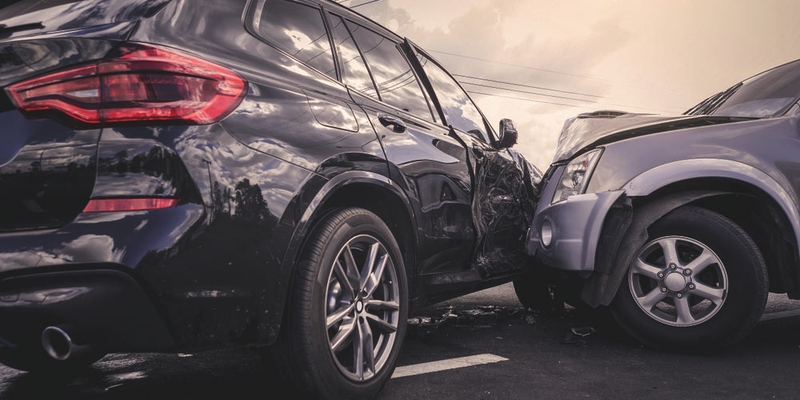
If you are not redirected within 30 seconds, please click here to continue.
Samedi: 10h – 16h HAE

If you are not redirected within 30 seconds, please click here to continue.
If you are not redirected within 30 seconds, please click here to continue.
Will my car insurance cover damage discovered after filing a claim?

This article was updated from a previous version.
You filed a claim with your auto insurance provider after an accident. The repairs covered by your policy are done. But you’ve since found more damage that you think may be related to the collision. What do you do?
The good news is that it’s not likely to happen. But if you do find additional damage caused by a collision that didn’t show up right away, you have plenty of options, even after having already settled a claim with your insurance company.
What happens during the initial claims process?
When you file a claim, an insurance adjuster will handle your case, making sure that all collision damage is thoroughly assessed.
Fernand Vartanian, the chief operating officer of LawVo and former general counsel for Onlia, explains that the odds of collision damage going unnoticed before you file a claim are rare because any damage is going to be assessed by an insurance adjuster who knows what to look for.
This adjuster will be assigned to your file when you make a claim and direct you to a preferred auto body shop. While you have the option of picking your own shop, he says, typically insurance companies have preferred vendors. The adjuster will physically inspect the vehicle, assess it, and approve a work order on it.
“They’re diligent,” says Vartanian. “That’s what they are paid to do.” You also can be present for this inspection.
Unless the assessment determines the vehicle is so damaged it must be replaced, the auto body shop will be directed to make sure your car is either repaired or rebuilt the way that it was prior to the collision, says Vartanian. “That's a contractual responsibility.”
When you buy auto insurance, you enter a contract called the Ontario Automobile Policy (OAP 1), which sets out the rights and obligations of insured persons and insurance companies related to automobile insurance coverages, and their terms and conditions.
Learn more: How to file a car insurance claim after a collision
Why choose preferred repair shops?
Between the OAP 1 and the practice of insurance companies having preferred vendors they know to be diligent and comprehensive, it’s unlikely you will discover additional damage to your vehicle once it’s returned to you.
However, if you do encounter issues with the vehicle after it’s fixed and you think it’s related to the same claim, Vartanian says, you have the right to go back to your insurance company. If the car door only started creaking after the collision, for instance, the insurance company will direct you back to their preferred auto body shop.
This is where taking your car to a repair shop selected by your insurance provider becomes especially important because, under your policy, the repair work has a lifetime guarantee, says Vartanian.
If you opt to have repairs done at a different auto body shop, you should confirm they offer a lifetime guarantee on the work they do. If the repair work isn’t done correctly the first time, or the adjuster missed something, you’re covered if you take it back to their preferred auto shop.
In the rare event that there is a dispute regarding damage and whether it’s related to the collision for which you filed a claim, you do have options, even if the insurance provider deems that the damage is part of a pre-existing condition or something that happened to the car after the collision repairs were done.
How to dispute repairs after a claim
There is a path forward if you want to dispute your insurance company’s assessment or believe a repair was missed.
All insurance companies are mandated to have a customer complaint resolution process, says Vartanian.
If your insurance provider is firm in the belief that the damage isn’t related to the collision, you have the option of contacting their internal ombudsman, who will review the evidence impartially and make a determination.
“If you're still not satisfied and you don't get the answer that you're looking for, then you can escalate it to a truly independent party,” says Vartanian.
That party is the General Insurance Ombudsman Service (GIO), which provides dispute resolution services if you’re having problems with your Canadian home, automobile, or business insurance company.
Its decisions aren’t binding, he says, but the organization tends to be very persuasive.
“If they decide against the insurance company, the insurance company is more likely than not to accept their decision,” he adds.
Beyond the GIO, there’s the Financial Consumer Agency of Canada (FCAC), which ensures federally regulated financial entities comply with consumer protection measures, promotes financial education and raises consumers’ awareness of their rights and responsibilities.
In addition, each province has their own insurance regulator.
“You have many avenues of redress if you don't like what you hear from the insurance company because it's a highly regulated industry,” says Vartanian.
Rarely do you have to go that far, though, and that goes back to using your insurance company’s preferred repair shop because it has been vetted as a trusted vendor.
Stick with a preferred auto shop, and you shouldn’t run into trouble
Choosing your insurance company’s preferred repair shop can save you from potential issues. These shops are knowledgeable about how different makes and models are affected by certain types of collisions. For example, if you’re rear-ended, they will know to look beyond your bumper to see if other parts of your car are affected, such as your trunk lid.
Vartanian says another benefit of using a vetted mechanic is that they are likely to spot any parts recalls issued by the manufacturer, so they’ll do any necessary replacements at no cost while you’re there.
He says that if you’re making a merit-based argument, there are many ways to keep insurance providers in check. By using their preferred vendors, the insurance company takes on the responsibility to make sure repairs and claims get resolved quickly and satisfactorily for all parties.
Going to your own repair shop or fixing things yourself is where you may run into problems. While insurance companies may give you a lump sum of cash in response to your claim, responsibility for adequate repairs then falls on you.
These checks and balances ensure the vendors insurance companies use meet a high standard. After all, your experience with a preferred auto shop reflects the insurance company and will no doubt be considered when shopping for car insurance at renewal time.
Read next: When do insurance companies write off a vehicle rather than repair it?
Don't waste time calling around for auto insurance
Use RATESDOTCA to shop around, and compare multiple quotes at the same time.
Get money-saving tips in your inbox.
Stay on top of personal finance tips from our money experts!









